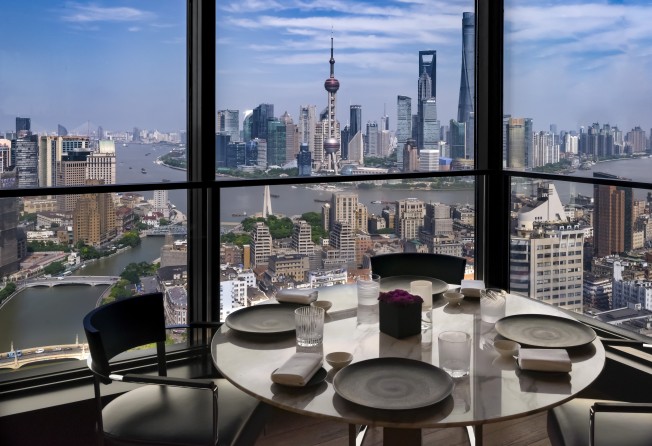
As tourism in the Asia-Pacific booms, the hotel industry is the real estate sector to watch
- While mature markets in the region, such as Hong Kong and Japan, are performing strongly, mainland China is driving growth in development and investment
- Meanwhile, Vietnam, which recorded the strongest growth in visitor arrivals, is the standout hotel market

Last year, Asia’s hotel sector accounted for just over 5 per cent of commercial real estate deals across the region. Yet the industry’s small share in investment transactions belies the strong performance and growth potential of a market that is one of the biggest beneficiaries of the global increase in spending on travel and tourism.
According to a report by property adviser Jones Lang LaSalle in February, the Asia-Pacific hotel market is expected to be “the stand-out region from a growth standpoint” this year, with transaction volumes expected to grow 15 per cent year on year. By contrast, investments in European hotels are forecast to decline by 5-10 per cent – partly because of political uncertainty across the region – while transactions in the Americas are projected to remain flat.
Asia has been enjoying strong growth in international tourism. The latest data from the UN World Tourism Organisation shows that the Asia-Pacific region experienced the highest increase in international visitor arrivals in the first quarter of this year, up 6 per cent, compared with 4 per cent in Europe and 3 per cent in the Americas. The growth was driven by a 9 per cent rise in arrivals in northeast Asia, with “a very solid performance from the Chinese market”.
In terms of room occupancy and underlying property performance, the region’s mature hotel markets are faring best. A report published by CBRE, another real estate adviser, in March noted that Hong Kong, Tokyo, Osaka, Singapore, Sydney and Melbourne all boasted occupancy rates of more than 80 per cent.
Hong Kong’s high occupancy of nearly 90 per cent – much higher than the regional average of 71 per cent – allowed the city’s hotel market to achieve 10 per cent year-on-year growth in local currency terms in revenue per available room, which is calculated by multiplying the average daily rate by the occupancy rate. This reflects continued solid demand from mainland tourists, data from CBRE shows.

Japan’s hotel market is also performing strongly, and is likely to be buoyed by the tourist boom generated by two major global sporting events: the Rugby World Cup in September and the Summer Olympics in Tokyo in July 2020. According to Jones Lang LaSalle, the two events are expected to provide a fillip to the country’s hotel investment market as some funds cash in on the surge in tourism in the run-up to the Olympics by selling assets.
Yet, while Asia’s established hotel markets are performing the best, it is the region’s less developed ones, led by mainland China, which are driving the growth in development and investment.
According to data from Jones Lang LaSalle, while the Middle East and Africa region led the increase in supply last year in terms of the share of rooms under construction as a proportion of existing rooms, mainland China (and the rest of the Asia-Pacific region) experienced a rise in development activity year on year. In the Americas, by contrast, the pipeline shrank significantly.
A cursory glance at the geographical make-up of Asia’s hotel investment market last year shows the growing influence of mainland China. A report by real estate adviser Savills in February revealed that the mainland led the Asia-Pacific region in transaction volumes, overtaking Japan in the first three quarters of last year. One of the biggest deals in 2018 was the purchase by a subsidiary controlled by China Vanke, the large mainland developer, of the hotel assets of the Banyan Tree China Hospitality Fund for 1.3 billion yuan (US$195 million).
While average occupancy rates are considerably lower in second- and third-tier cities – 64.5 per cent and 59.6 per cent respectively at the end of last year – revenue per available room for five-star hotels across all city tiers experienced significant gains in the first-half of last year on a year-on-year basis, data from Savills shows.
What is more, private equity funds are getting in on the act, in a sign of the growing appeal of Chinese hotels as an asset class. Earlier this month, Everbright Ashmore, the real estate investment arm of China Everbright Group, teamed up with Huazhu Group, a large mainland hotel operator, to launch a private equity fund focused on hotel and residential real estate opportunities, the first such vehicle in mainland China, according to the two companies.
Yet the hotel market to watch in the coming years is Vietnam, currently one of the world’s fastest-growing economies. Last year, Vietnam recorded the strongest growth in international visitor arrivals in the Asia-Pacific region, up 20 per cent year on year, according to CBRE, led by an influx of Chinese and Korean tourists.
The boom in tourism – which is benefiting hugely from the introduction of electronic visas for 40 countries – is being facilitated by improvements in infrastructure and partnerships with the private sector.
Ho Chi Minh City recorded one of Asia’s strongest growth rates in revenue per available room last year, partly due to the dearth of supply in the city. CBRE notes that niche hotel brands, including Innside, a new lifestyle hotel launched by Spain’s Melia group, are entering the market, generating additional demand by “creating greater destination awareness of the overall Vietnam hospitality market”.
In Asia’s buoyant hotel sector, developers and investors are finding rich pickings in mature and emerging markets alike.
Nicholas Spiro is a partner at Lauressa Advisory